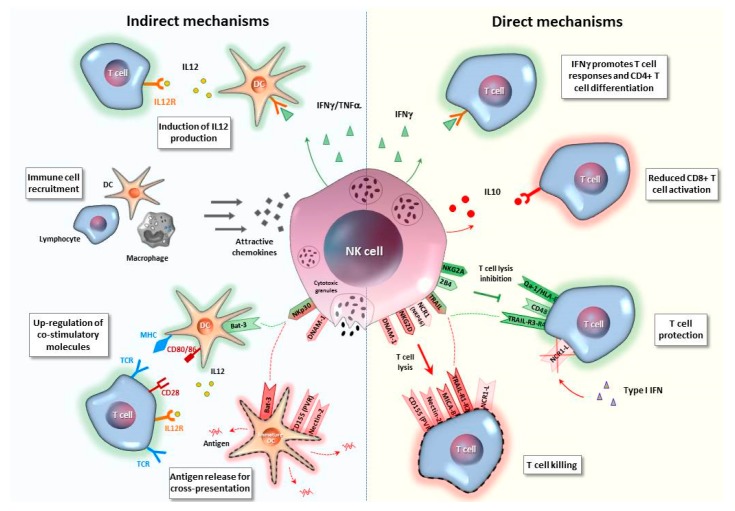Figure 2.
NK/T cell interplay. NK cells can exert either a regulatory or a protective role on T cells via indirect or direct mechanisms. Among indirect interactions, NK cells can influence T cells by regulating dendritic cells (DC), which are responsible for antigen presentation and subsequent T-cell activation. IFN-γ produced by NK cells enhances DC maturation, recruitment, and secretion of IL-12, which, in turn, stimulates T-cell responses. Moreover, NK cells are responsible for the migration of different immune cells through chemokine production. Interaction between NK receptors and their ligands on DC can induce an enhanced antigen presentation capacity, by upregulating DC MHC and costimulatory molecule expression, but can also lead to immature DC lysis, with an antigen release for cross-presentation by DC subsets. NK cells can also directly promote or restrain T-cell responses through IFN-γ or IL-10 release, respectively. Depending on the balance expressed by the different receptor/ligand pairs, NK-T cell cross-talk can result in inhibition or induction of T-cell lysis.

